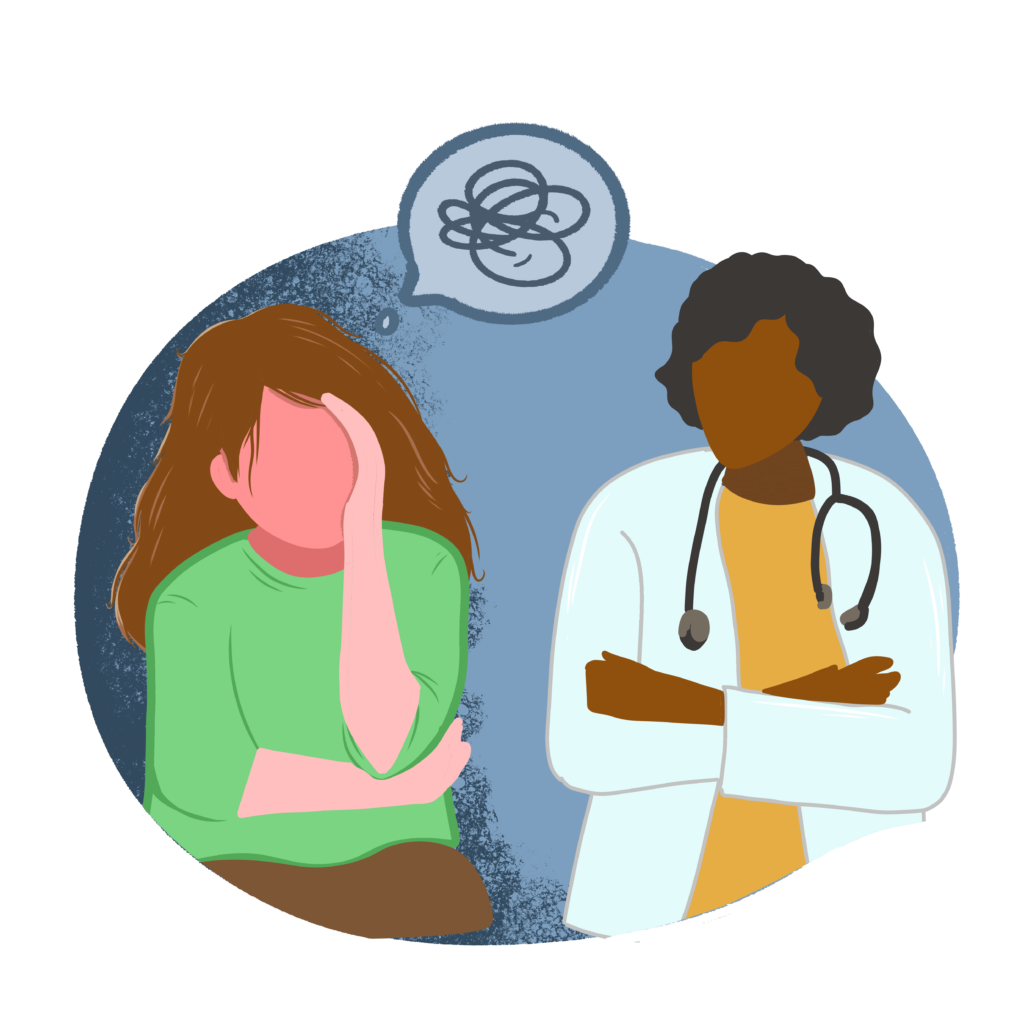Anxiety is a common symptom during the menopausal transition since mood-related changes have a direct relationship with the sex hormones and is generally caused by the fluctuation of oestrogen during menopausal stages. Menopausal anxiety impacts both mental and physical health and manifests through symptoms like jittery feeling, stress, depression, paranoia, fast heartbeat, being irritable, and restlessness.
Several research studies have suggested that HRT can be a way to treat menopause-related anxieties and some other symptoms that come with it but before you go to therapies, try some natural alternatives first like doing regular exercise and adopting a healthy diet. We will tackle more about this topic to give you more insights about what you should do if you’re ever in this situation.
Is Anxiety Linked to Menopause?
Menopause-related anxiety is a condition characterised by elevated nervousness and fear that occurs primarily during the menopausal transition and is frequently associated with hormonal fluctuations in the body. Since it is directly related to the menopausal phase, this form of anxiety is distinct from general anxiety disorder.
According to the study from the University of Wisconsin led by Dr. Whitney Wharton, anxiety is connected with the declining oestrogen levels that occur during reproductive cycle events, notably during the menopausal transition, which is characterised by significant variations in oestrogen levels and an increase in new onset and recurrent depression. Also in matters of genders, depression and mood disorders are more common in women than in men.
The most often recognized characteristics or symptoms of having menopausal anxieties are the feeling of nervousness or restlessness, increased heart rate, jittery, sweating, nausea, and trouble in sleeping. Additionally, menopausal-specific life stressors like health problems, age-related concerns, or shifting family relationships can significantly worsen anxiety. In order to provide a thorough explanation of the reasons for anxiety during this transitional period, the next section will go deeper into the many elements that causes anxiety.
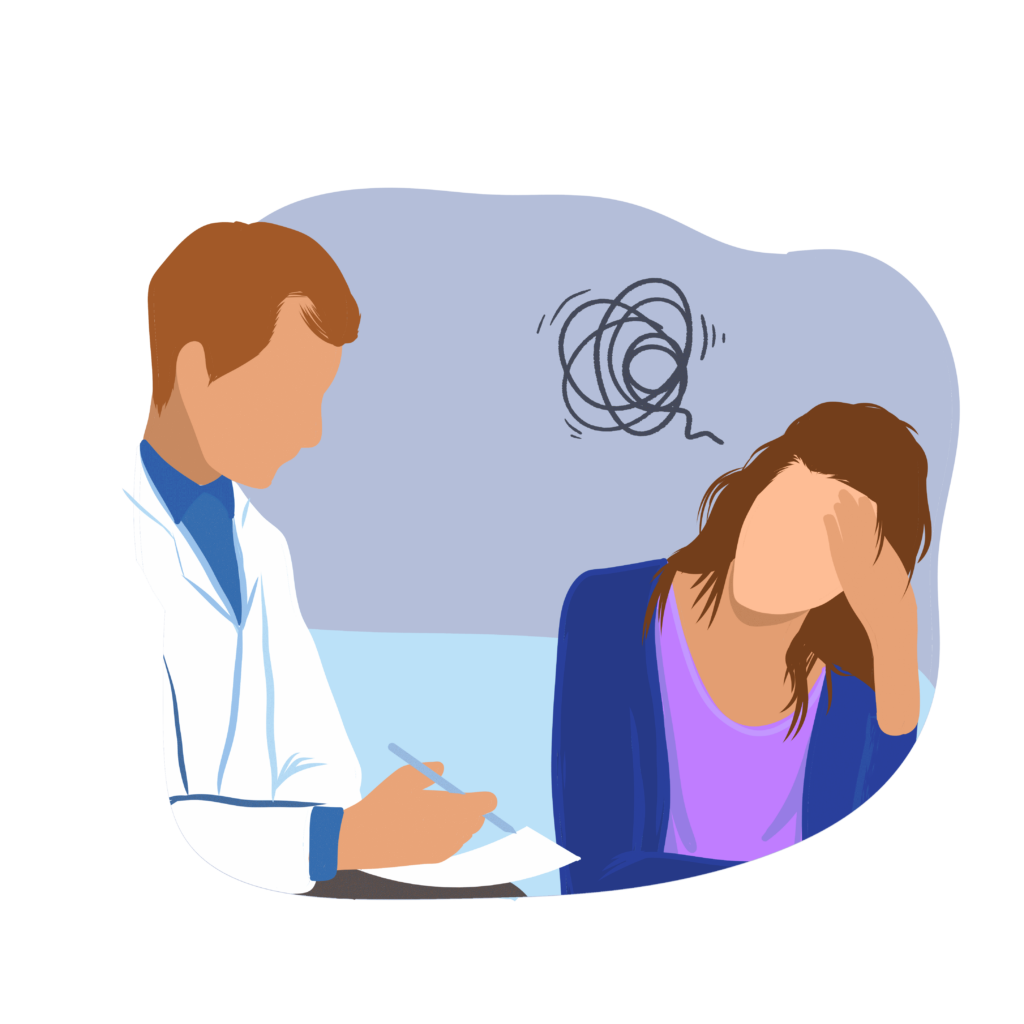
What Causes Anxiety During Menopause?
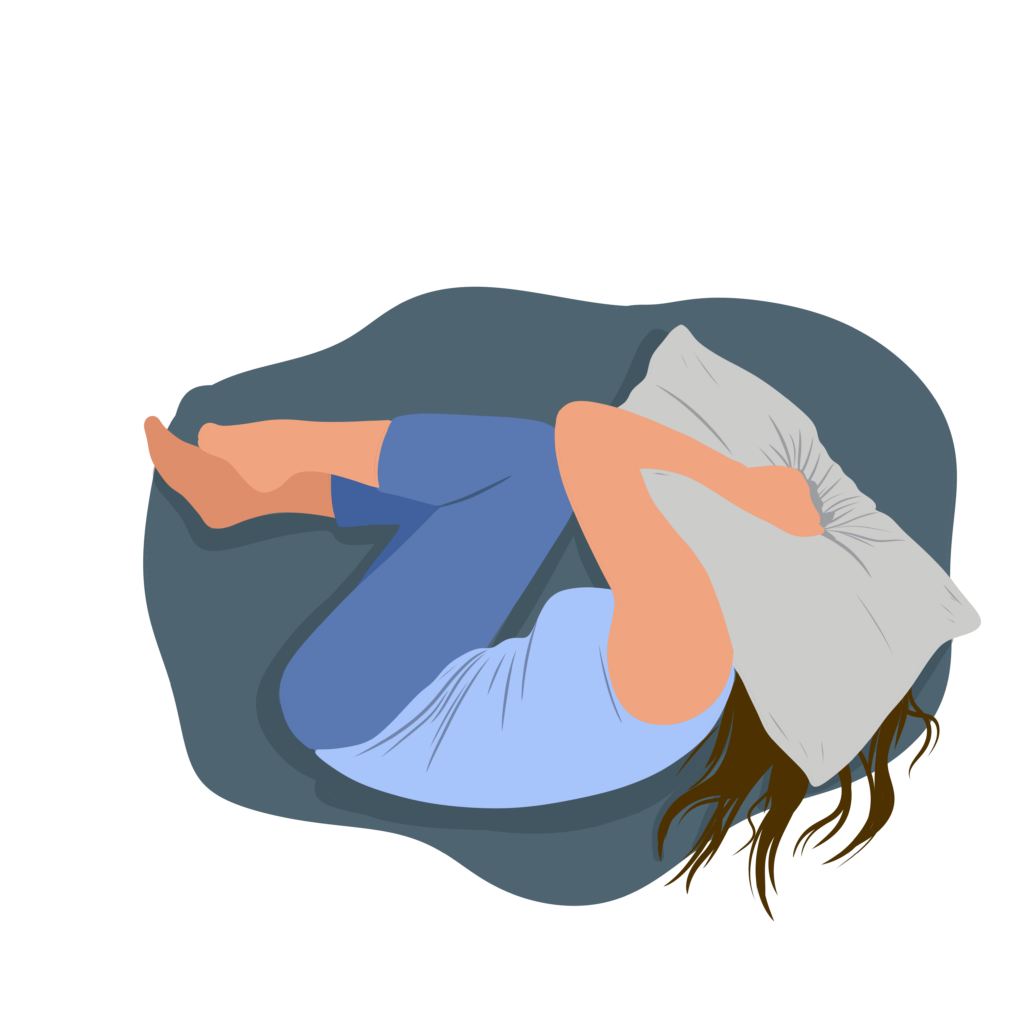
Anxiety during menopause is mostly caused by hormonal fluctuation that affect brain chemistry, specifically oestrogen and progesterone levels, and these impact mood-regulating neurotransmitters.
Studies consistently demonstrated that during periods of substantial hormonal fluctuation, women exhibit an elevated risk for both new onset and recurrent anxiety as well as depression. The decline in oestrogen during the menopausal transition are thought to be the main cause of the increased risk of depressive disorders in perimenopausal women, although a number of psychosocial factors, including shifting life roles and attitudes towards ageing, also play a role. Most remarkably, several studies have discovered a higher prevalence of anxiety and depression in women during the menopausal transition, a time marked by sharp swings in oestrogen levels prior to a general decline in levels to about 10% of perimenopausal levels.
The start of menopause typically coincides with significant life transitions or stressors, such as ageing, health problems, and changes in family dynamics, which worsens anxiety that’s why psychosocial variables are also essential. It’s also important to remember that certain women may be more vulnerable to anxiety throughout menopause because of a genetic predisposition. In light of these complex factors, the following section will examine the possibility that Hormone Replacement Therapy (HRT) can reduce menopausal anxiety and provide information on its efficacy as well as the underlying processes that underlie its actions
Can HRT Help Menopausal Anxiety?
Hormone Replacement Therapy (HRT) certainly helps many women cope with menopausal anxiety by addressing the hormonal imbalances that typically promote these symptoms.
Research provides more evidence in backing up the theory that hormone regulation is an important component in the pathobiology of anxiety and mood disorders. Although it can be difficult to connect hormonal changes to mood disorders or symptoms because of the length of the menopausal transition, evidence from clinical research indicates that hormone replacement therapy (HRT) is an effective treatment for depressive disorders.
The mechanism of action of this medication is the restoration of oestrogen, which has a beneficial effect on the neurotransmitter systems involved in mood regulation. It’s vital to remember that HRT may not be appropriate for everyone because using it may carry some adverse effects, which should be carefully considered based on each person’s unique health profile.
Menopausal anxiety can also be treated with alternative therapies, counselling, and lifestyle modifications in addition to hormone replacement therapy. These alternatives will be discussed in more detail in the section that follows. They provide a wider range of options for treating anxiety during menopause, meeting the various demands and health issues of various people.
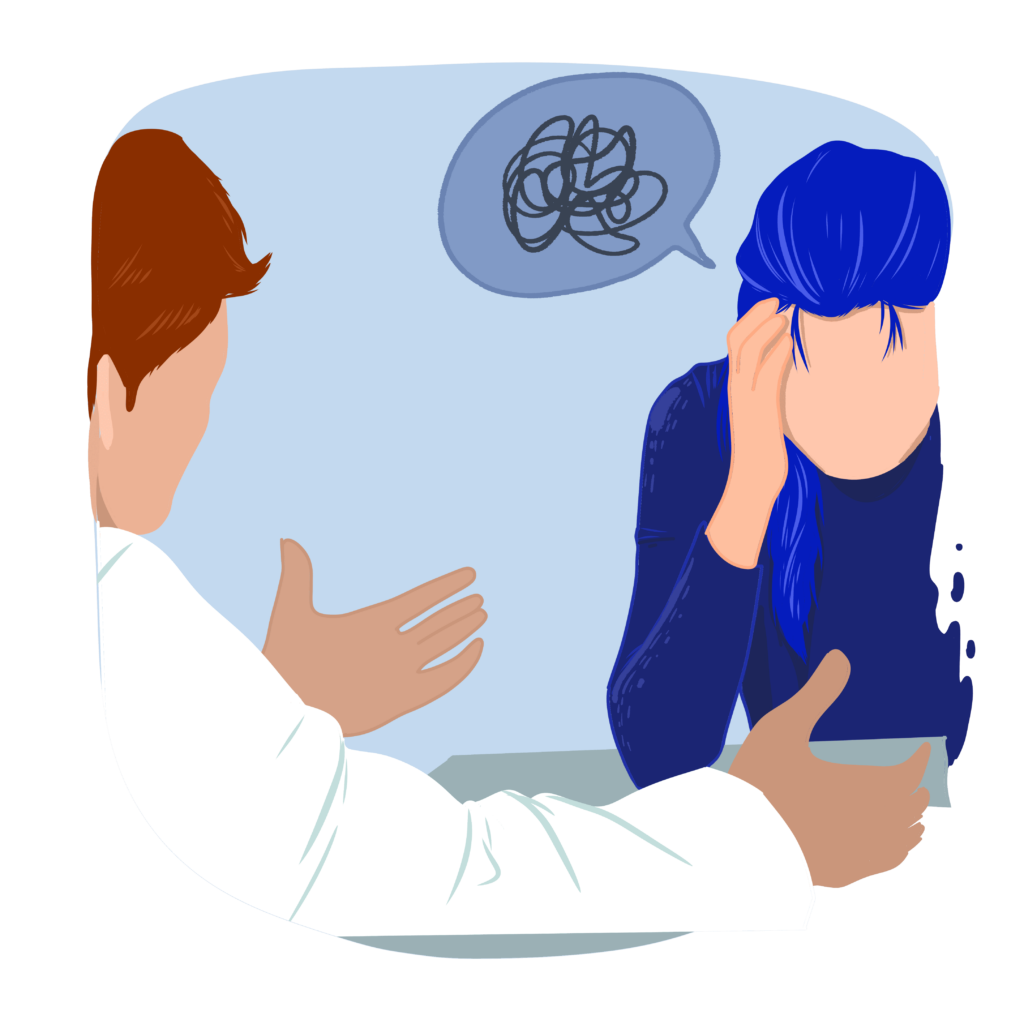
Treatments for Menopause Anxiety
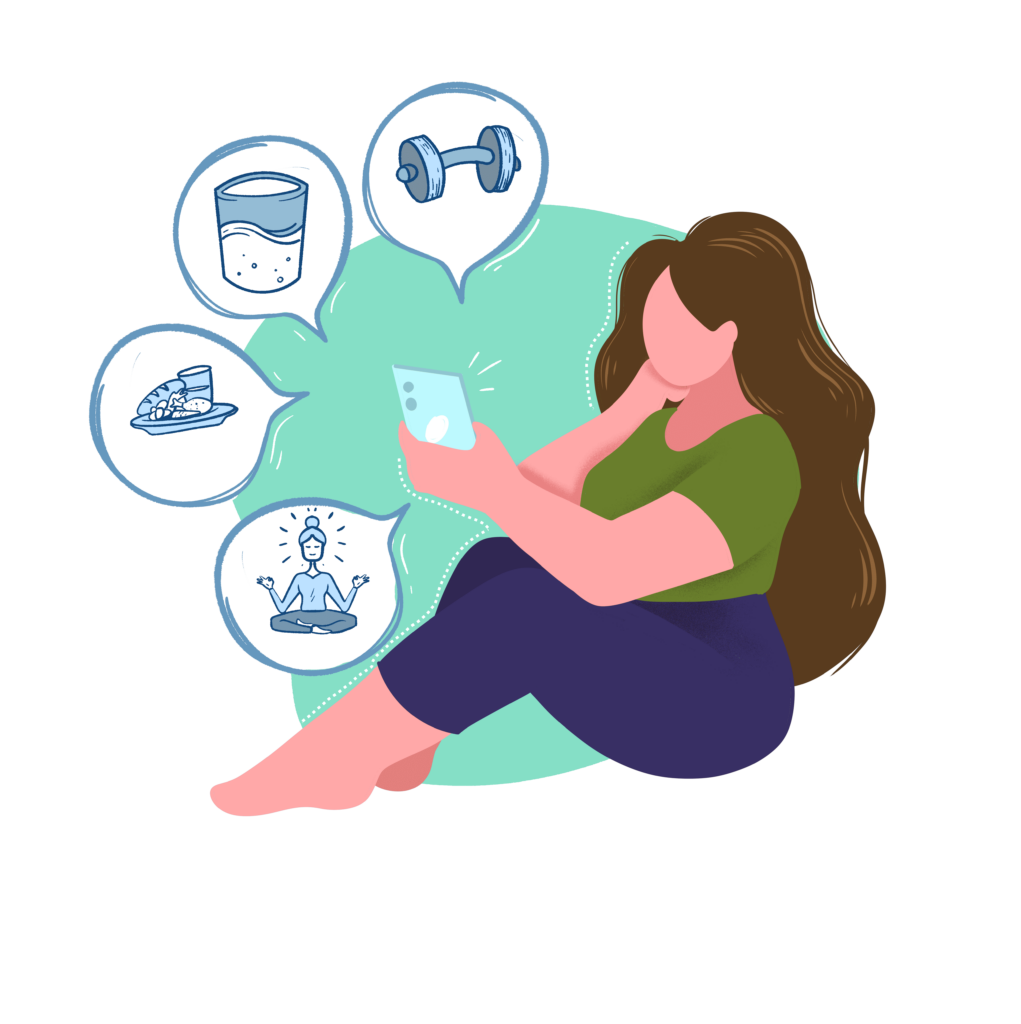
Menopause-related anxiety can be managed with a variety of medications, each of which targets a distinct part of the illness. Below are the various things you can do to treat menopause-induced anxieties.
Regular Exercise
Frequent exercise has several advantages for both physical and mental health, making it a very successful anxiety management technique. Exercises that reduce stress and enhance wellbeing include yoga, strength training, cardiovascular exercise (such brisk walking or cycling), and mindful meditation.
Studies indicate that regular physical activity, like walking, can potentially elevate mood in addition to structured training regimens. Exercise and physical activity are two different things, although they are both beneficial to your health. Based on the
study conducted by Dr. Elizabeth Anderson and Dr. Geetha Shivakumar, people who regularly exercise report feeling less anxious and depressed, which lends credence to the idea that physical activity can prevent mental illnesses from developing.
Exercise was found to be more successful than cognitively based distraction approaches at reducing trait anxiety, although both were equally effective at reducing state anxiety. Furthermore, compared to therapy, exercise has been demonstrated to have results that persist longer.
Practise Slow-Breathing Exercises
Peer Support for Mental Health
Peer support is a helpful and consoling option for people who are experiencing anxiety. Making connections with people who have gone through similar things as you can foster an understanding and empathy that is especially comforting. Sharing ideas and emotions with peers who understand the difficulties associated with anxiety, whether through official support groups, internet forums, or unofficial networks, creates a nonjudgmental atmosphere. When people realise they are not alone in their challenges, feelings of loneliness are frequently reduced as a result of this common knowledge.
A study conducted by Jeremie Richard, et al. proposed that social support is linked to better mental health, such as increased enjoyment, self-worth, and skillful coping, as well as decreased worry, despair, and loneliness. Peer support, both in person and in groups, seems to improve mental health and has favourable benefits for those who offer it.
Balanced Diet
Eating a balanced diet is essential for anxiety management because dietary decisions have a big influence on mental and physical health. Consume a range of entire meals high in complex carbs, such as whole grains, fruits, and vegetables, to help control blood sugar levels and offer a consistent flow of energy. Include lean proteins, such as fish, chicken, beans, and nuts; these foods include amino acids that aid in the synthesis of neurotransmitters, such as serotonin, which is involved in mood regulation. Sources of essential fatty acids that are good for the brain and can have a positive impact on emotional well-being include walnuts, flaxseeds, and fatty fish.
According to the study of Dr. Monique Aucion, et al., anxiety disorder development and progression may be influenced by specific eating patterns. Diets that follow “healthy” patterns, such as Mediterranean diet, traditional diets, the anti-inflammatory diet, and diets with more variety are linked to reduced anxiety. Commonalities across these diet plans include a focus on fruits and vegetables, a reduction in sugar and refined grains, and an increase in the intake of foods with little to no processing.
Hormone Replacement Therapy
It is uncommon for hormone replacement therapy (HRT) to be recommended as the main treatment for anxiety. Researchers from University of Bern assessed several case studies regarding the effectiveness of HRT on mood-related symptoms of menopause such as anxiety and found out that all studies reported a beneficial impact of HRT on anxiety symptoms.
However, it is important to remember that choosing to take hormone replacement therapy (HRT) should be carefully considered, taking into account individual health concerns and potential side effects. People who are having symptoms of anxiety, particularly while their hormones are changing, should speak with a physician to determine the best course of action for their individual needs.
What Does Menopause Anxiety Feel Like?
Anxiety related to menopause usually presents as an all-encompassing sense of fear or discomfort that is different in frequency and severity from the regular stresses of daily living. It is characterised by symptoms that are both psychological and physical, and it frequently involves excessive concern, stress, and difficulty relaxing.
Physical manifestations of anxiety could also range from jittery feeling or tremors, light-headed, headaches, irregular heartbeat, hot flashes or sweating, and even lesser sex-drive.
Beyond only causing mental discomfort, anxiety also has an impact on sleep habits, focus, and general quality of life. The length of the menopausal anxiety is a factor to take into account. The following part will examine the average length of menopausal anxiety, including how long these symptoms may last and the variables that affect how long they last. This will provide readers a thorough grasp of the temporal aspects of this illness.
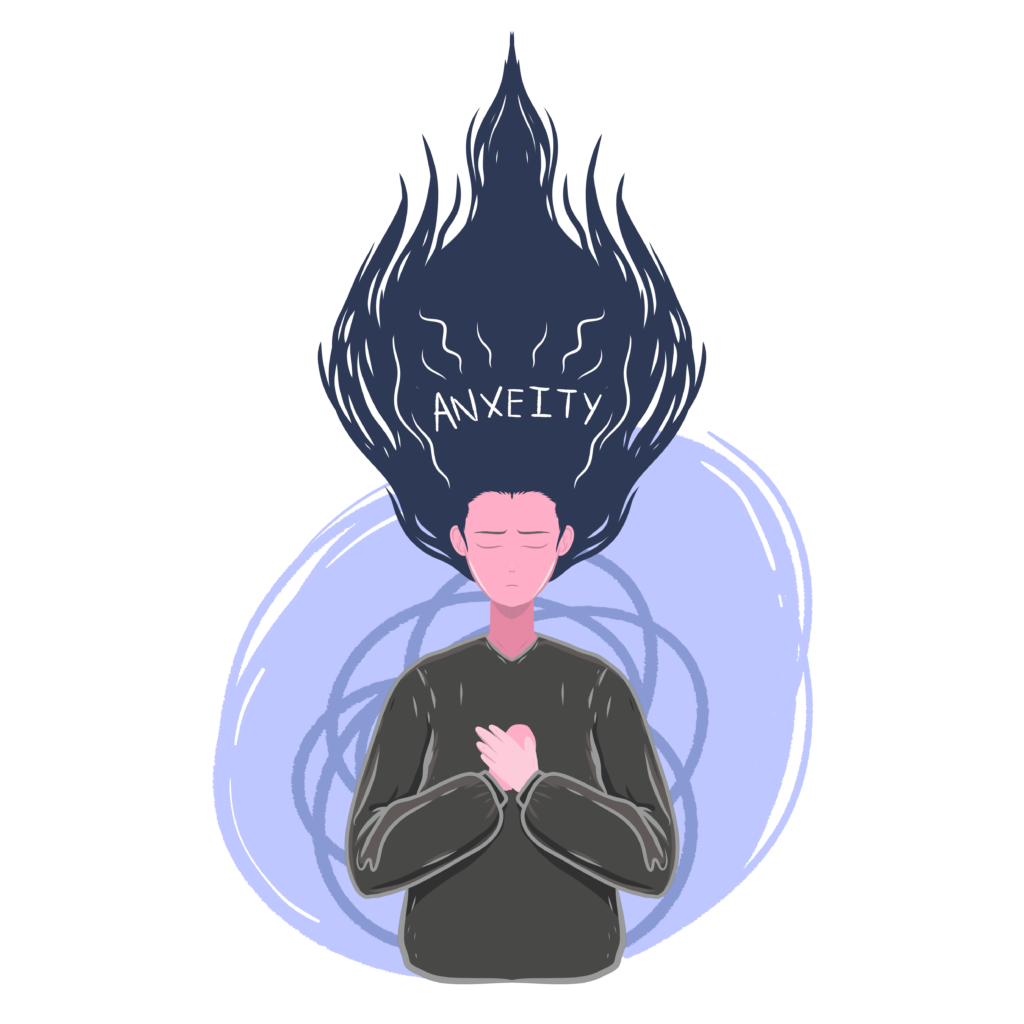
How Long Does Menopause Anxiety Last?
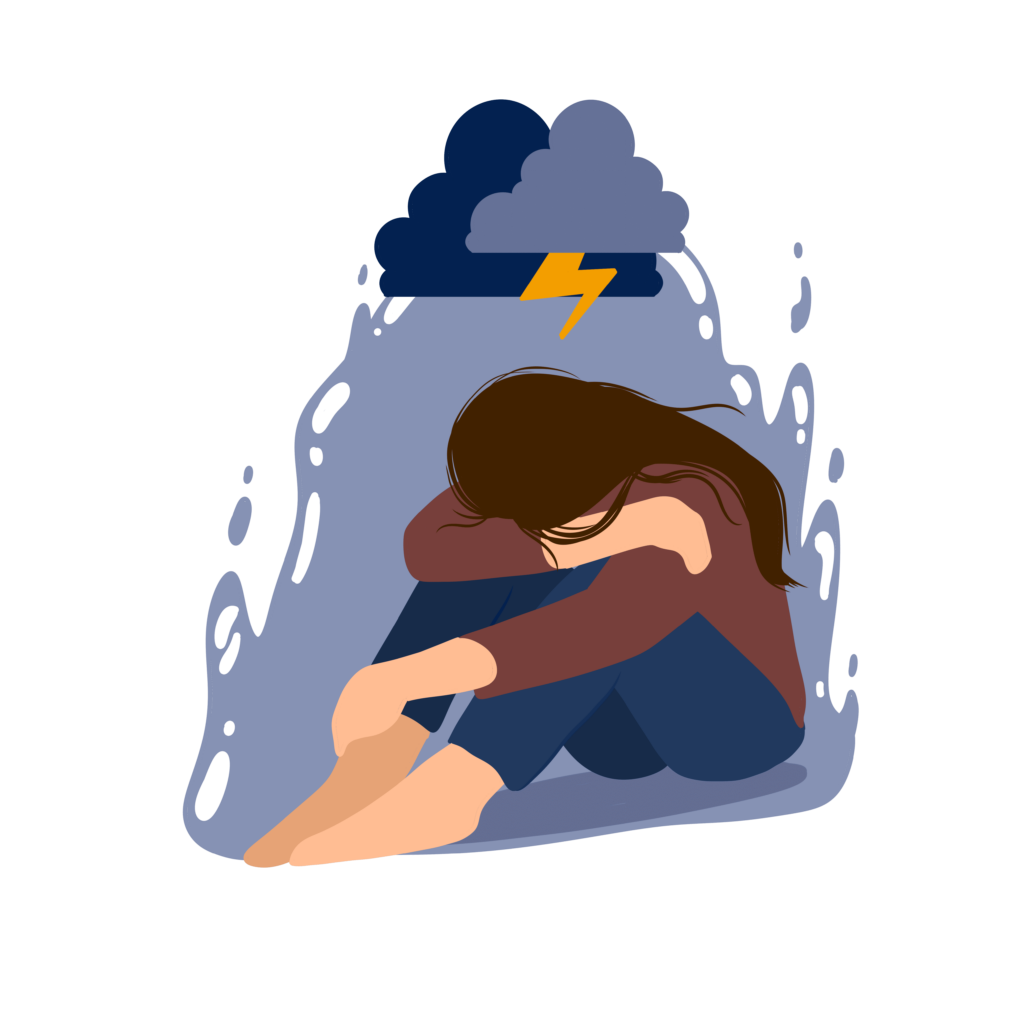
When Should You Consult a Doctor?
A visit with a physician should be arranged if anxiety starts to interfere with your everyday activities, relationships, or general sense of wellbeing. A comprehensive medical evaluation is essential, especially if your anxiety is accompanied by significant mood fluctuations, ongoing insomnia, or notable weight changes. Speak with a healthcare professional before pursuing procedures like hormone replacement therapy (HRT) to carefully assess the risks and benefits. With a comprehensive evaluation tailored to your individual health profile, the experts at OMC can help you weigh the pros and cons. Your health and well-being come first, and OMC’s committed staff is prepared to offer customised support and solutions to help you navigate menopause more easily.
Contact us today to see how we may assist you with your symptoms.
